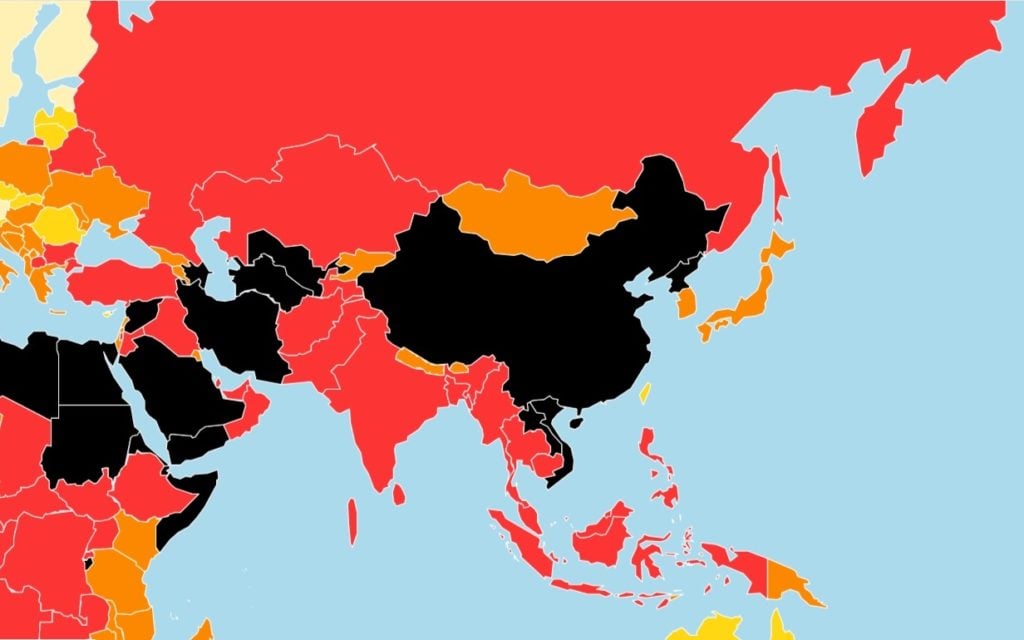
Reporters Without Borders (RSF) released its annual 2017 World Press Freedom Index which revealed Taiwan as the top place among other Asian countries and ranks no. 45 in the world (nations in black are the least free). (RSF)
In the quest for geopolitical influence, soft power can often augment a nation’s traditional hard power resource of a strong military. The concept of soft power, often associated with Harvard professor Joseph Nye, has been defined as “a persuasive approach to international relations, typically involving the use of economic or cultural influence.” Nations have long used economic incentives or foreign aid to win friends internationally, and the widespread popularity of a nation’s culture, such as Hollywood movies and South Korean pop culture, can also contribute to positive images of a country.
While nations may seek positive images in the quest for soft power, oftentimes the opposite occurs, and nations lose soft power. Two recent examples include the U.S., where the new president has yet to gain the confidence of the majority of the public. According to a new Pew Research Center survey spanning 37 nations, a median of just 22% have confidence in Trump to do the right thing when it comes to international affairs, and favorable views of the U.S. have fallen from 64% to 49%. Inside the U.S., 53% of voters disapprove of the job President Trump’s doing, according to a new Fox News Poll.
Over in China, President Xi Jinping’s numbers are not much better, with a 28% of those world citizens polled believing Xi would do the right thing regarding world affairs. The reasons behind this low polling are varied, but are arguably influenced by the detention of human rights activist and Nobel Peace Prize laureate Liu Xiaobo, who called for political reforms and died on July 13 in custody.
One nation which recently gained some soft power, whose status remains a bone of contention among Washington and Beijing, is Taiwan. The decision by Reporters Without Borders (Reporters Sans Frontières) to open its first Asian regional headquarters in Taipei, is a stark departure from original plans to locate in Hong Kong. In explaining its decision, RSF (an advocate for press freedom) cited concerns over increasing media control in Hong Kong and potential infiltration by spies from mainland China.
According to RSF’s global rankings last year, Taiwan has now become the freest country on the Asian continent. At a news conference in Taipei last month, announcing the official launch of RSF, its secretary-general Christophe Deloire said “Taiwan is pure evidence that democracy and press freedom are possible in Chinese culture, and that is really one of the strongest arguments against claims by Beijing authorities their system is really adapted to Chinese culture.”
Soft power gains, such as the location of RSF to Taipei, can in part offset other losses (the recent loss of diplomatic recognition of Taiwan by countries like Panama), are often cost-effective compared to risky foreign investment, and should continue to be pursued as an effective tool in augmenting hard power.